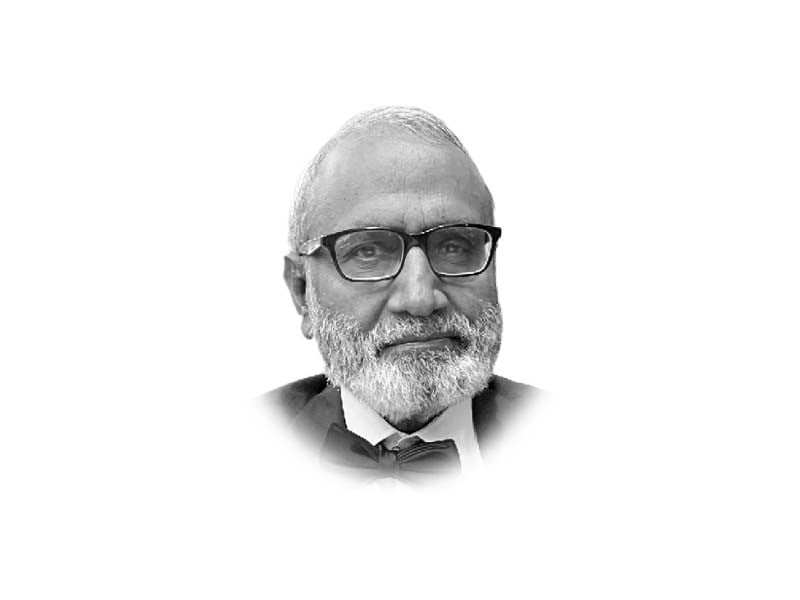
Three factors — the dissolution of assemblies before time; possible notification of census; and the high jump in petroleum prices — leave no doubt that the caretaker setup will be longer than usual. With no more than constituency funding to sell to the voters, the coalition parties seem to have winked at the change in the hybridity-mix, with the dominant element becoming predominant as well. The latter is worried that a shrinking economy is reducing its own share in the pie. The personal presence and speech by the COAS at the ‘Dust to Development’ summit signalled that the dust is settling down and development is coming, “It is our social responsibility to play our collective role in the country’s economy. We must never lose hope” was the message. Economic growth has not just to be revived, but raised to 7-8% on a sustained basis. This requires investment rate to rise over 20% from the stagnating 15-16%. There is a long list of reasons, but rapid policy reversals, the unease of doing business and the security climate stand out. A glaring example is the failure of CPEC’s special economic zones to take off.
The COAS made four key points. First, the formation of Special Investment Facilitation Council (SIFC) to bring all stakeholders at one platform for investors was the result of collaboration between the government and state institutions. Secondly, the SIFC has laid down new rules for the “ease of doing business”. Thirdly, and importantly, what was not clear before has now been clarified. These rules are for domestic as well foreign investors. Any discrimination against domestic investors does not go well with the foreign investors. Fourthly, the investor-friendly system will provide easy terms and conditions for business.
Let it be clear that the proof of the pudding will be in the eating. Foreign investors are not dying to come to Pakistan and the domestic investors have been holding back for quite some time. The tall claims made at the minerals summit, especially the rhetoric and the mega numbers in the main presentation, are too good to believe. As Munnu Bhai, the famous Urdu columnist, once said about such claims: It seems that more of Pakistan is under the earth than above it. The saving grace here is the understanding reached with friends from the Gulf for government to government agreements. Once these agreements mature, others can be expected to follow. This might then stir the local geese to fly. The whole idea of the SIFC cropped up in the table talks with the Gulf counterparts. These states want action. Action in our case is procrastinated by pure incompetence, procedures, too many layers, corruption, fear of NAB and a lot more. This is the cost the economy is bearing due to the failure to reform the civil services. There is a multiplicity of institutions, created under donor-funded programmes without much thought. On top of it is the indecisive politics and judicial overreach. Failure to privatise Pakistan Steel Mills and the Reko Diq fiasco are the well-known cases. Civilian efforts to ease the doing of business invariably ended up in adding just another window.
Why is that all these institutions and layers suddenly start working when the military is involved? Getting things done in an environment of sluggishness, covert resistance through delays or overt opposition becomes a question of power. It works vis-à-vis government decision-making, but it does not when it comes to taxing traders. The SIFC, therefore, has to act as “single spies” and not “battalions” to avoid the “sorrows” of a Shakespearian tragedy.
Published in The Express Tribune, August 4th, 2023.
Like Opinion & Editorial on Facebook, follow @ETOpEd on Twitter to receive all updates on all our daily pieces.




1731975305-0/Untitled-design-(40)1731975305-0-165x106.webp)
1731975060-0/Untitled-design-(39)1731975060-0-165x106.webp)


1729685382-0/Untitled-design-(57)1729685382-0-270x192.webp)




COMMENTS
Comments are moderated and generally will be posted if they are on-topic and not abusive.
For more information, please see our Comments FAQ